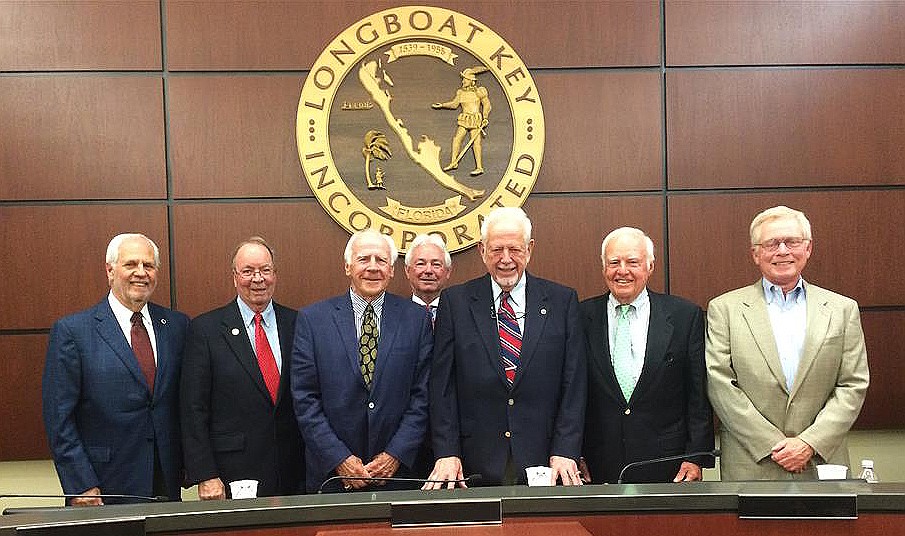- April 25, 2024
-
-
Loading

Loading

Darn. It seems downright boring this month on Longboat Key.
Yeah, yeah, there is the usual February traffic. Sorry, it is what it is. At least it’s 78 degrees here, not minus 2.
But the fact there are no contested Town Commission races this spring surely is an indication Longboat Key voters are, for the most part, satisfied with the job the current commissioners are performing. Two of the three commissioners up for re-election — Mayor George Spoll and Commissioner Jack Daly — automatically won because they had no opponents. And Mike Haycock, a member of the town’s Planning and Zoning Board, also won automatically after his opponent, Randy Langley, decided the two of them were so similar in views that Langley withdrew his candidacy last month.
Let’s be grateful. Given the strife in Washington, D.C., that consumes the airwaves, cyberspace and national newsprint, perhaps we should appreciate the reprieve from nasty local political campaigns.
Nevertheless, Longboat voters still will be encouraged to participate in the March 12 town elections to decide two proposed charter amendments (see box).
Neither of the questions appears all that controversial. But like always with ballot initiatives, there are underlying nuances to consider. This week, we address the proposal to change town commissioners’ terms from three two-year terms to two three-year terms:
What can be so complicated — increasing commissioners’ terms from two years to three years? The maximum number of years a commissioner can serve consecutively still will remain at six. So what’s the deal?
To a degree, we’re ambivalent. What could be the harm going from two to three years?
In all likelihood, neither choice — sticking with two-year terms or going to three-year terms — will make any tangible difference to taxpayers positively or negatively in the way the town is governed.
Then, what is driving the question? Typically, you amend the charter when taxpayers and citizens see a recurring problem that needs fixing. But what’s the problem? After all, two-year terms have worked satisfactorily since the town’s founding in 1955.
What has changed to make this necessary now?
Here’s the impetus: the commissioners themselves. They want three-year terms because campaigning every two years is as fun as the pre-op to a colonoscopy. They hate campaigning and asking for money. The late Mayor Hal Lenobel epitomized this stance when in his last election, a contested race, he refused to campaign — no signs, no mailers, no meet-and-greets. And he still won.
Nary a contested election goes by without a candidate lamenting spending $10,000 or more to win an unpaid job.
Past and present commissioners also say three-year terms would help them be better commissioners, and by extension, would inure to the benefit of taxpayers and governance of the town. Typically, commissioners say they spend the first year learning. Only in the second year, after a year of absorbing and learning town government’s nuances, do they feel more competent on the issues. But about halfway through that second year, they lament becoming occupied with the next looming campaign for re-election.
To an extent, you can see and empathize with them. So, sure, give them their three-year terms. Having to campaign only twice will save them time, expense and aggravation. What’s more, how badly could three-year terms mess up the town’s governance? It’s difficult to think how they could. Commissioners believe the longer terms would improve their effectiveness.
But flip the coin. Consider the taxpayers’ perspective: Two-year terms keep commissioners vigilant, engaged, urgent and accountable. Three-year terms would lessen all of that. And you could see how they would contribute more to the perception that the Town Commission is a select club of the same players year after year.
Likewise, with three-year terms, if a commissioner does something stupid (and they do now and then), voters would be stuck for three years. Two-year terms, in contrast, create a higher degree of accountability. It’s easier to throw a bum out.
Altogether, Longboat Key has survived and thrived as a well-run town for 65 years under the two-year term system. And you know the saying: “If it ain’t broke, don’t fix it.”
The Town Commission and the town’s governance are far from “broke.” Indeed, it’s difficult to discern a compelling case to switch to three-year terms. Yes, it would make life easier for commissioners, and there is no harm in that. But the tangible benefit to taxpayers and residents is not readily clear.
Either way, you can argue this is not a high-risk proposition. The governance of the town likely will not change to any noticeable degree. So take your pick. As we said at the outset, we’re ambivalent, leaning more toward the status quo.
Today, we recommend: Vote no.
Next week: The density referendum